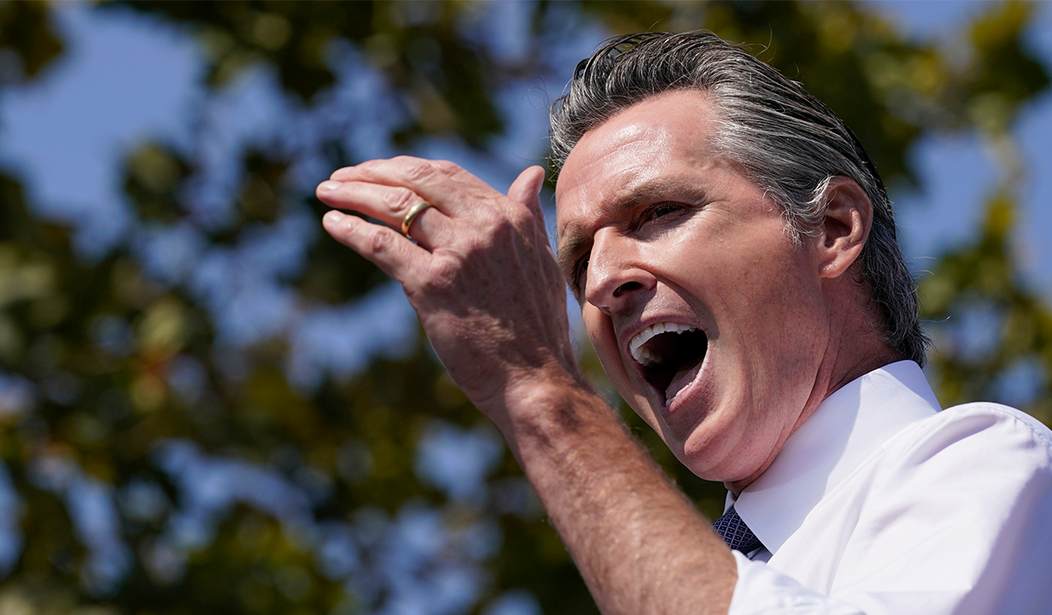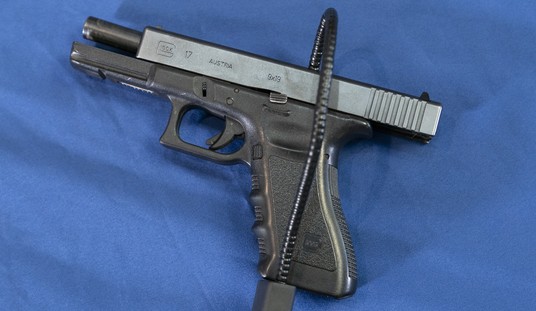The team at Michel & Associates didn't hold back at all in their response to the defenses of four-figure application fees, year-long waiting periods, and other infringements of the right to carry that are being challenged in CRPA v. Los Angeles Sheriffs Department, et al. In a reply brief submitted to U.S. District Court Judge Sherilyn Peace Garnett, the pro-2A attorneys declare that one general theme has emerged from the LASD, La Verne Police Department, and the offices of Attorney General Rob Bonta and Gov. Gavin Newsom; a reliance on the "unspoken premise that the Second Amendment is a second-class right."
The brief makes explicit comparisons to the massive resistance that California has mounted to the Bruen decision with the Massive Resistance movement speared by U.S. Senator Harry Byrd of Virginia after the Supreme Court struck down segregation in schools in Brown v. Board of Education back in the 1950s.
It bears repeating that Cooper v. Aaron, 358 U.S. 1 (1958) dealt specifically with bureaucratic delay in implementing public school integration.
At the time, Senator Byrd had issued the call for “Massive Resistance,” and a grotesque corpus of enactments designed to flout Brown’s call for integration emerged. This Court, like the Cooper Court, should sweep aside the excuse-making by state actors by simply make the finding that “[D]elay in any guise in order to deny [..] constitutional rights [..] [should] not be countenanced, and that only a prompt start, diligently and earnestly pursued [..] [can] constitute good faith compliance.” To countenance this form of “resistance” when it comes to Second Amendment rights in a post-Bruen landscape invites the same constitutional anarchy that prevailed between Plessy and Brown.
Last year, when he announced a new bill restricting carry in response to Bruen, Governor Newsom (like his spiritual predecessor Governor Orval Faubus of Arkansas) angrily criticized the Supreme Court for the Bruen ruling, and ridiculed the notion of a right to carry with sarcastic air quotes. Now local issuing authorities, hostile to the right to carry described in Bruen, are aping the Governor’s defiance of the Supreme Court and attempting to stifle the right by other means.
I hope Gavin's knickers are fully twisted after he sees himself compared to one of the chief opponents of civil rights in the South in the 1950s. It's an apt analogy, though in the 1950s the goal was to prevent an entire class of citizens from exercising all of the rights protected under the 14h Amendment, while today's Second Amendment-deniers are trying to prevent every citizen from exercising one particular constitutionally-protected right.
As the brief points out, while the defendants have offered a multitude of excuses for their treatment of gun owners and those seeking concealed carry permits, none of them are good enough to withstand a constitutional challenge. The Los Angeles Sheriffs Department, for example, claims that the influx of applications has lead to lengthy delays, but offers no evidence that the department has increased staffing to account for the additional applications. Instead, as the department admits, it has a backlog of more than 9,000 applications to process, and at its current speed is capable of only processing 2,340 applications per year. The LASD maintains that even if there's a right to carry, there's no right to carry in a timely manner, and the department can take as much time as it wants before issuing a permit to any given applicant.
Not so, says CRPA.
Whether the delay is a product of LASD’s decision to understaff its CCW division, or something else, is not truly relevant. Bruen expressly forbade lengthy wait times that deny ordinary citizens the right to carry; no scienter is required. Thus, this Court must order LASD to end its abusive delays, and guarantee that Second Amendment rights are not relegated to “second class” status—or, in LASD’s case, constitutional steerage. The fact that LASD has not already assigned as many personnel as are necessary to liquidate the backlog shows its gross disrespect for the enumerated rights of Californians. A right delayed is a right denied. Unless and until LASD gets its house in order, this Court should allow Plaintiffs to carry without a permit pending a decision on their applications.
The brief also takes California Attorney General Rob Bonta for asserting that non-residents have no right to bear arms when they visit the state. Bonta claims that since other states might have lower standards for issuing a carry license than California, the state can bar anyone who possesses a valid carry permit from one of the other 49 states, but as CRPA points out, "every state permit scheme requires a background check (and usually a training course) as a prerequisite to issuing CCW permits. There is no lawful way to maneuver around those requirements (other than permitless carry)."
Turning to the State’s historical analogues, the most glaring deficiency is the almost total lack of Founding era history. In that era, residents of other states could carry firearms and other weapons around the country, so long as they did not do so “to the fear or terror” of the people, as the State notes. Carrying of weapons while traveling was not a new or novel problem at the Founding. The lack of Founding era restrictions on nonresident carry unequivocally dooms the State’s argument under Bruen. The later 19th-century laws that the State presents fare no better. They were almost exclusively concealed carry restrictions which did not affect open carry, thus allowing nonresidents to carry arms openly without a permit. And when it comes to carry restrictions on nonresidents, the State’s expert cites only hunting-related laws (save for one 1899 law pertaining to firearm acquisition), not laws pertaining to peaceable carry for self-defense.
The state can't point to a national tradition of limiting the exercise of Second Amendment rights to only the state where someone lives because there is no such national tradition to be found in our history.
CRPA revisited the civil rights struggles of the 1950s when responding to La Verne's audacious claim that its $1,081fee schedule for concealed carry applicants is just fine Bruen’s "express warning that imposing an exorbitant fee schedule for a carry permit is unconstitutional is irrelevant dicta."
Without a doubt, if any other constitutional right were at issue here, La Verne would be too embarrassed to make the “others are doing it, so we can too!” argument in support of its exorbitant fee schedule. While it is true that other issuing authorities in Los Angeles County are also engaged in “massive resistance” with similarly exorbitant fee schedules, that they are not defendants in this action has no bearing on whether La Verne’s fee structure survives historical review under Bruen.
That Birmingham, Prince Edward County, and Jackson resisted complying with school integration was no defense to Little Rock post-Brown. Similarly, it is no defense here that other issuing authorities in Los Angeles County are also flouting Bruen’s express warning with exorbitant and unconstitutional fee schedules.
... In stark contrast to Bruen-resisting jurisdictions are the issuing authorities that granted permits to all law-abiding applicants even before Bruen required it. For example, the Riverside County Sheriff’s Department charges $195, plus the cost of the training course. This includes the cost of fingerprinting, and like most issuing authorities, Riverside does not require a psychological exam.
Assuming a $250 training course as La Verne’s matrix did, the total expense for a Riverside applicant is therefore $445. While $445 is still a unconstitutional barrier to the exercise of a constitutional right, it is still less than half of La Verne’s $1,081. And La Verne’s fees remain exorbitant, every two years, for each renewal. Assuming a $250 training course, renewals in Riverside are $337 while La Verne charges $675 for renewals. And in San Bernardino County, training is done in-house, there is no psychological exam, initial applications cost $396.40, and renewals cost only $192—an absolute comparative bargain compared to La Verne.
The CPRA attorneys do note that even the "bargain" prices in San Bernardino are far more expensive than what it costs to obtain a carry license in states like Arizona ($60 plus the cost of fingerprinting) and Texas ($40). Heck, Indiana has removed all fees beyond fingerprinting costs for carry applicants, but if you're a minimum-wage worker in La Verne you're going to have put in 67 hours on-the-clock just to pay for the permit allowing you to exercise your right to bear arms.
The CRPA brief is far too extensive to quote in its entirety here, but the entire document is straight fire, and I encourage you to read it for yourself when you've got a few minutes. And if you've got a couple of bucks to spare, contributions to CRPA, the Second Amendment Foundation, Gun Owners of America, Gun Owners of California, or the Gun Owners Foundation will be greatly appreciated and help the attorneys challenging these flagrant abuses continue on with their fight... all the way to the Supreme Court if necessary.









Join the conversation as a VIP Member